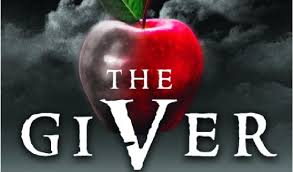Ethan, Week 13 - Memories Give Life
In the book The Giver(yes, the book we had to read several years ago), by Lois Lowry, memory is portrayed as a complex ability that allows the protagonist Jonas to gain his individuality and break away from the dystopian society. The memories themselves are what causes Jonas to make the drastic decisions that led up to his journey out of his safe, albeit monotonous, home.
In The Giver, all of the people in the society are mostly ignorant of the past(besides The Giver). Everyone seems to be happy without these memories and the monotonous life. Their society even has medication to get rid of and forget pain instantly. However, all of the humans in community have forgotten or not known things in order to achieve “sameness.” This state of being alive but lacking true human experience creates a want for more in Jonas.
See, memories are an important aspect of the human experience. This idea is reinforced with the drab, almost depressing, imagery of life without it. After all, it isn’t truly “living” without the feelings of nostalgia or the one memory that keeps on coming back to haunt you. The ability to remember cherished memories or learn from past experiences is what makes use human. This is exactly what the main character seeks for himself. The Giver reminds us of the necessity of being reminded by past memories.
However painful, I too would choose the pain of tragic memories like Jonas over the blissful ignorance of living without any sort of long term memory.

Hello Ethan, I loved how you made your blog about a book that the majority of the audience has read already. By explaining the theme of memory in Giver, it shows how significant memories are to people. Memories shape the people we are and give us our unique traits and behaviors. By connecting Giver to the topic of memories, you demonstrate how vital the past can be to us, and how harmful living a fake, glorified life is to us. You gave us a synopsis of the book, connecting how the society of Giver is inhumane and almost robotic, due to the medicines they give to forget painful memories. In their society, it is so easy to become oblivious to the most painful moments of our lives just by the pop of a medication. Whether good or bad, our memories are needed to make us stronger.
ReplyDeleteHey Ethan, I really like how you discussed the book, The Giver, in your blog this week; it is one of my favorite books, and I enjoyed the movie adaptation as well. At first, the society in which the characters live in seems utopian; their lives are perfectly ordered and their emotions are suppressed. It is only later as readers that we realize that they are living in a dystopian society. They lead lives with basically no free will because humanity’s memories are forgotten to them. Knowledge of our ancestors, their cultures, their experiences and journeys, are what make us human. They have helped us develop into the society we are today and without their memories, humanity would still be lingering in past. Like you, I would rather choose the pain of tragic memories then having no memory at all. Thank you for writing this blog!
ReplyDeleteThe Giver is a book about a dystopia, where along with memories, humans were robbed of common feelings. Citizens were not able to feel pain, love, see color, or experience the joy of being alive, essentially turning us into robots. But the biggest thing they were missing were memories, specifically about what happened "before." In the book, Jonas is able to experience hunger, sunburn, snow, things that were taken away from them. Being able to remember these experiences are vital to a fulfilling life. Your blog made interesting connections between memory and a well known book, and explored the impact memory has on human life. It is as integral to know previous experiences not just for a hedonistic life but also to practically avoid past mistakes, and remember positive feelings.
ReplyDelete